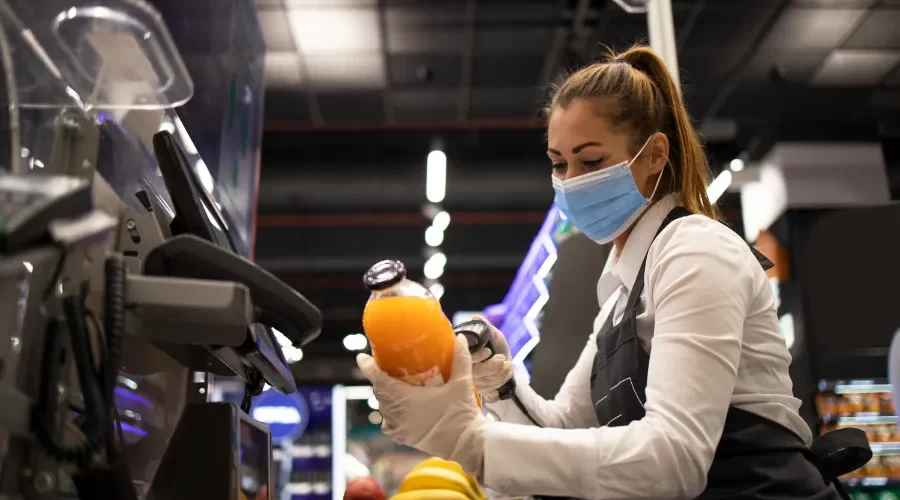Last Updated on January 27, 2024 by Ezra Matiasi
Packaged Foods | Beverages | Supplements | Baby Food | Packaging & Labelling | Import Regulations
Packaged and processed foods such as snacks, confectionery, and canned goods are generally allowed, as long as they comply with specific requirements.
Non-perishable items like instant noodles and ready to eat meals are usually permitted.
Basic seasonings and spices are generally allowed, but it’s recommended to check for any restrictions on specific ingredients.
Japan has strict regulations on food imports. This is to protect the country’s agriculture and prevent the spread of diseases.
The Japanese government also imposes restrictions on foods containing additives, preservatives, and other chemicals considered harmful to human health.
Saying “I didn’t know” is not a valid reason when it comes to law, make sure to cross-check what you “can” and cannot” bring into Japan.
Before you pack your bags it is important to understand the regulations and restrictions regarding food imports.
This will help you avoid potential problems and get the most out of your trip.
A trip to Japan can be an exciting culinary adventure, but what if you want a special diet or bring your own snacks from home?
Food that you are allowed to bring into Japan:
When it comes to specific food items allowed in Japan, there are certain categories that are generally permitted without significant restrictions.
Let’s explore some of these food items
Packaged and processed foods:

- Snacks: Snacks such as chips, chocolate, and candy are allowed as long as they are packaged and unopened.
- Dried Foods: Dried goods such as pasta, cereal, and instant noodles are also allowed as long as they are packaged and unopened.
- Spices and Sauces: Spices and sauces are also allowed as long as they are packaged and unopened.
- Canned goods and preserved foods: Canned fruits, vegetables, soups, and other preserved food items are usually permitted.
Related Post: Can I Bring Canned Food To Japan?
Beverages:

- Alcoholic beverages: As long as you are of legal drinking age, you can generally bring alcoholic beverages such as wine, beer, and spirits for personal consumption.
- Soft drinks and bottled water: Non-alcoholic beverages like sodas, juices, and bottled water are typically allowed.
- Tea and coffee: You can bring tea bags, Loose leaf tea, instant coffee and canned coffee or packaged coffee drinks without significant restrictions.
Related Post: Can You Bring Coffee To Japan?
Dietary supplements and vitamins

- Personal use quantities of dietary supplements, vitamins, and other similar health products are generally allowed. However, it’s recommended to check for any specific regulations or restrictions on certain ingredients or formulations.
Baby food and infant formula:

- Bringing baby food and infant formula for personal use is generally permitted. It’s advisable to carry commercially packaged items with clear labelling and to be prepared for possible inspections.
Bonus Tip for what food you can bring into Japan
It’s important to note that even within these permitted categories, there may be specific requirements or restrictions for certain ingredients or formulations. It’s always a good idea to check the official sources, such as the MAFF website or consult with the embassy of Japan in South Africa, to ensure compliance with the most up to date regulations.
Food Packaging and labelling requirements

- All food items brought into Japan should be properly packaged and sealed to prevent contamination.
- Clear and accurate labelling in Japanese or English is essential, including the ingredients, nutritional information, and expiration dates.
Food Import Regulations and Restrictions
It is important to note that Japan has strict customs regulations for food products.
The Japanese government introduced these regulations to protect its agriculture and prevent the spread of plant and animal diseases.
As a result, travellers are required to declare all food they bring with them.
- When you arrive in Japan, you must declare all food items to customs. This includes fresh fruits and vegetables, processed and packaged foods, dry foods and baby foods.
- Food items must be properly packaged and unopened to be allowed into Japan
- Fresh fruits and vegetables must be free from pests and diseases to be allowed into Japan
FAQ’s
In most cases, individuals travelling to Japan are allowed to bring spices for personal use. It is important, though, that the spices are properly dried and appropriately packaged. Please note that there might be restrictions on fresh spices or those in paste form due to concerns regarding plant pests and diseases.
Usually, plain bread or bread filled with non-animal ingredients is allowed without issue. However, bread containing meat or dairy fillings is frequently subject to restrictions.
In general, most types of nuts can be brought into Japan, especially if they are salted, dried, or roasted. However, please note that walnuts are prohibited and cannot be brought into the country.
Travellers are typically allowed to bring dried fish for personal consumption into Japan, with certain considerations. It is important to be mindful of quantity restrictions, ensure proper packaging and labelling of the dried fish, and avoid bringing any prohibited or restricted species.
Travellers are typically allowed to bring dried fish for personal consumption into Japan, with certain considerations. It is important to be mindful of quantity restrictions, ensure proper packaging and labelling of the dried fish, and avoid bringing any prohibited or restricted species.
Conclusion
In conclusion, understanding what food you can bring into Japan is essential for a hassle-free travel experience and to comply with the country’s regulations.
Japan has strict guidelines in place to protect its agricultural industry and maintain food safety standards.
By adhering to these regulations, you can ensure the preservation of Japan’s unique ecosystem and enjoy the culinary delights the country has to offer.







